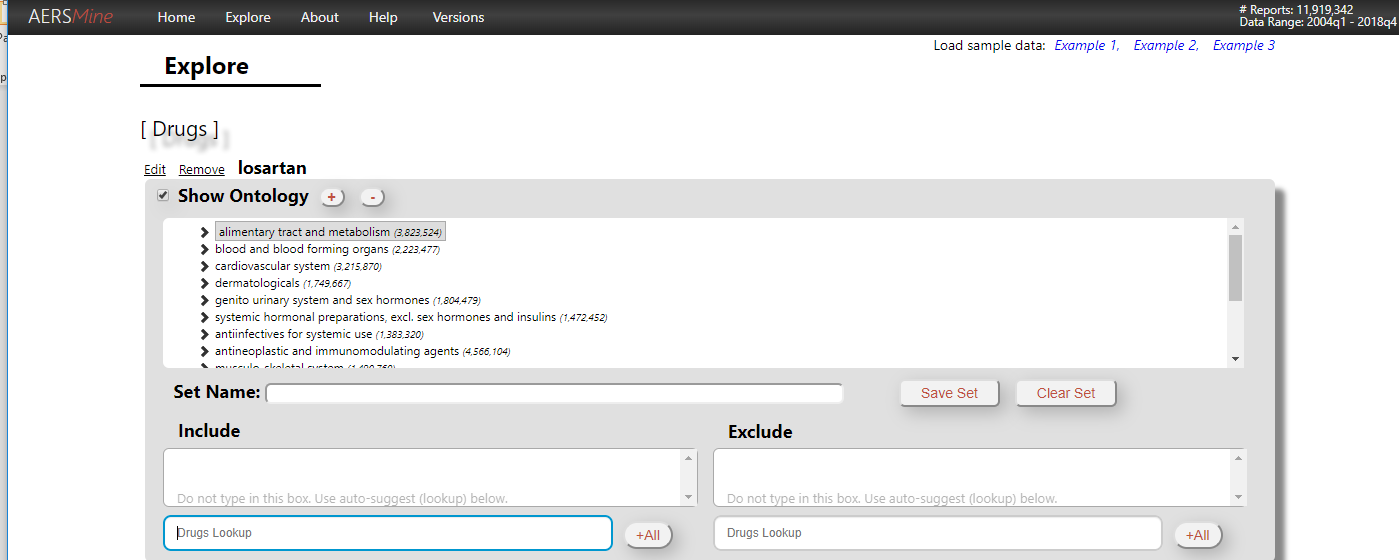AERSMine Helps Investigators Dig Into Massive FDA Database
Research By: Mayur Sarangdhar, PhD | Anil Jegga, DVM, MRes | Bruce Aronow, PhD
Post Date: June 29, 2019 | Publish Date: July 12, 2016

“AERSMine demonstrates that large scale, big data meta-analyses can identify novel safety and efficacy signals in ‘real-world’ medical settings.”
—Mayur Sarangdhar, PhD
In its first year, the new web-based data tool called AERSMine connected 9.2 million de-identified patient reports to a massive database of FDA-approved drugs.
This information is helping scientists and clinicians to track and identify unexpected clinical harm, benefits and alternative treatment choices. Not just for groups, but individual patients.
The tool draws its name from the big data source it mines: the U.S. Food and Drug Administration’s Adverse Event Reporting System.
POWERFUL DATA MINING TOOL
Developed by scientists in the Division of Biomedical Informatics and the Center for Clinical and Translational Science Training, the database has been instrumental in helping to reduce negative side effects from prescription drugs. The tool enables analysis of millions of clinical records containing details on drug exposures, disease indications, and clinical outcomes. Researchers also can use the tool to discover improved uses of individual drugs or drug combinations, and to develop novel treatments for diseases.

Launched in July 2016, AERSMine allows anyone, from physicians to the general public, to rapidly find, combine and analyze the growing volume of drug information stored at the FDA.
The tool is fueling new insights at Cincinnati Children’s, but its direct impact has been felt globally. Researchers at the University of Padova in Italy used AERSMine to analyze safety reports on diabetic ketoacidosis (DKA), a life-threatening buildup of acids in the blood. They reported in the journal Diabetologia that SGLT2i-associated DKA may not be limited to any particular demographic or co-morbid subpopulation.
At the 2017 conference of the Association for Consumer Research, the University of Texas MD Anderson Cancer Center presented evidence, mined from AERSMine, showing novel associations of inflammatory myopathies with immune checkpoint inhibitors.
The system’s open-aperture approach has been essential in revealing the association between different drug regimens for some groups of patients and unexpectedly better or worse clinical outcomes.
“It is able to facilitate the ultimate goal of protecting patients by improving therapeutic selections and monitoring strategies,” says first author Mayur Sarangdhar, PhD, a computational scientist and instructor in Biomedical Informatics. “It also conserves valuable therapeutics by minimizing harmful interaction choices.”
NUGGETS OF OPPORTUNITY
Although the FDA’s database offers an extensive array of reports and related data on the clinical use of drugs and adverse effects, study authors say predecessors of AERSMine were insufficient.

Bruce Aronow, PhD, senior study author and Co-Director of the Computational Medicine Center at Cincinnati Children’s, says:
“One of the capabilities that makes AERSMine different from any other clinical data mining system is its ability to use knowledge frameworks—ontologies—to form groupings of patients, medications, and outcomes. We believe this provides unprecedented power to explore negative and positive drug effects.”
EARLY SIGNS OF SUCCESS
The researchers evaluated the tool by running a series of analyses involving three important classes of drugs: 1) lithium, which is used to treat manic depression/bipolar disorder; 2) anti-tumor necrosis factor (anti-TNF) drugs, which is used to treat inflammatory conditions; and 3) Non-steroidal anti-inflammatory drugs (NSAIDs) used for pain management.
Their analysis of lithium, for example, showed that 22,575 patients had used the drug with a total of 4,180 adverse drug events. AERSMine-dissected data shows that 327 adverse events significantly correlated with patients that use lithium (such as aggression, anger, suicidal tendencies, etc.) have a significantly reduced rate of occurrence in patients taking angiotensin receptor blockers (ARBs) to control hypertension.
The intriguing possibility suggested by AERSMine analysis is that ARBs might protect bipolar patients taking lithium from its potentially dangerous side effects.
Meanwhile, authors detected other potential connections by studying the use of NSAIDs for arthritis and chronic pain. They detected differential rates of adverse clinical events depending on whether people used propionic acid derivatives (like ibuprofen) or cox-2 inhibitors. They also detected patient groups for whom the risks of NSAID adverse events are much lower than others.

“The underlying power of AERSMine is based on the functions of networks of genes that link clinical phenotypes and drug mechanisms of action to the functions of biological systems,” says Anil Jegga, DVM, MRes, study co-author and a computational biologist in Biomedical Informatics. “This allows the molecular basis for drug-related adverse events to be leveraged to identify opportunities for repositioning drugs for new clinical uses.
Bigger Data are Better
As targeted small molecule drugs and immune therapies emerge as weapons against cancer, regulatory approvals are becoming more reliant upon smaller clinical trials. However, small studies can limit the extent of safety profiling.
“AERSMine,” Sarangdhar points out, “demonstrates that large scale/big data meta-analyses can identify novel safety and efficacy signals in ‘real-world’ medical settings.
| Original title: | Data mining differential clinical outcomes associated with drug regimens using adverse event reporting data |
| Published in: | Nature Biotechnology |
| Publish date: | July 12, 2016 |
Research By







